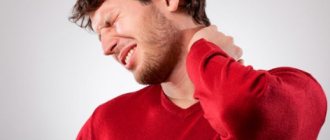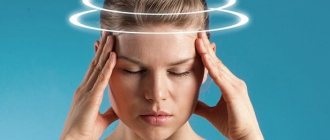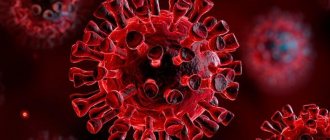Causes of dizziness
Dizziness itself performs a protective function for the human body. Decreased vision due to dizziness is a psychological defense against a negative environment. Dizziness is very dangerous for human health, since loss of consciousness is possible during dizziness.
Stress, which can lead the human body to dizziness that occurs suddenly, may be accompanied by weakness and darkening of the eyes. Depression, which lasts for a long time, also leads to severe dizziness; a large load comes not only to the nervous system, but also to the cardiovascular system, which can provoke various heart diseases.
A person’s depressive state can lead to an exacerbation of existing chronic diseases and to serious consequences for the entire human body.
Provoking dizziness can cause increased irritability, panic, sleep disturbances, high blood pressure, and emotional instability.
Psychogenic dizziness or vertigo? How to determine?
Dizziness is a frequent accompaniment of VSD. A person under the influence of stress or emotional turmoil may experience vague conditions that he explains as dizziness. Here is a typical example of such symptoms from letters from our clients.
Hello, I am 26 years old, diagnosed with VSD. 5 years ago I lost consciousness on the street. There were no obvious reasons for fainting; all tests were normal. After that, every day there were headaches, dizziness, fainting, vomiting, weakness, fear. I decided that it was damage, since for me, a physically developed, strong, healthy, active person, this was incomprehensible.
I gained weight (I tried to go to aerobics, but terrible headaches after and during classes stopped me), there is fog in my head (pressure), every day I either have a headache or a faint state, my arms and legs feel weak, my stomach turns, etc. I’m not making anything up, I’m trying to be optimistic, but MY HEAD... For another 3.5 years I haven’t been able to have children (the gynecologist sees no reason).
The nature of dizziness in this case is psychogenic, i.e. has psychological roots and, therefore, can be effectively treated not with medications, but with appropriate psychotherapeutic methods.
Artists use this kind of abstraction to depict vertigo disease.
To make sure that dizziness is indeed psychogenic, other causes of this disorder that are associated with serious diseases should be excluded. You need to undergo a medical examination, possibly with the involvement of several doctors, to understand:
- Is the vestibular apparatus affected at any level?
- Are there any neurological diseases accompanied by fainting?
- Does the person have heart or spine diseases?
Symptoms
Main symptoms of dizziness:
- A feeling of some kind of unreality of what is happening, which passes as if with fog in the head.
- Slight clouding of mind.
- Feeling of loss of balance.
- Loss of consciousness.
- Constant feeling of weakness.
- Feeling very tired.
- Sleep disturbance.
- Constant sleepiness.
- Disorder of the organs of vision and blurriness of objects before the eyes.
- Frequent attacks of panic, fear, and unreasonable anxiety begin.
- Pain in the chest area.
- Cardiopalmus.
- Dyspnea.
- Increased sweating.
- Frequent headaches.
- Increased blood pressure.
- Apathy towards what is happening.
Dizziness can start anytime, anywhere, causing a person many problems and inconveniences. A person suffering from frequent dizziness is in constant tension, waiting for the next attack, sometimes with such nervous tension a person is able to bring himself to the next attack. In this situation, you need not to beat yourself up, but try to get rid of such negative thoughts.
Diagnostics
If you experience frequent dizziness, you should start by visiting a neurologist, and then contact an otolaryngologist. At the same time, you will be asked to undergo vestibular tests (caloric test, rotational tests), as well as posturography - a study of the interaction of the visual, vestibular and muscular systems in ensuring balance. To diagnose a possible disease of the hearing aid, pure tone threshold audiometry and acoustic impedance measurements may be needed; to find out the condition of the blood vessels - ultrasound scanning or computed tomography.
Treatment of neurosis
Establishing a correct diagnosis with only the symptom of dizziness is extremely difficult. The doctor will need to run a series of tests to eliminate all sorts of other causes of dizziness.
The doctor pays attention primarily to the patient’s psychological state, his anxieties, fears, aggression, and possibly frequent anxiety for no reason. A disease of neurosis, mainly the consequences of a depressive state or frequent panic disorders.
To treat neurosis, it is necessary to eliminate the cause of this symptom. With the disappearance of neurosis, frequent dizziness will stop, or they will not appear as often.
Treatment is carried out with medications that include antidepressants, tranquilizers and sedatives. But it is believed that treatment is much more effective and, in some cases, even better, contacting a psychotherapist.
The doctor helps the patient not only get rid of neurosis, but also improve his psychological and emotional state. With the help of special gymnastics, with the help of which the vestibular apparatus is strengthened, breathing exercises are also used.
In some cases, the elimination of neurosis, with the symptom of dizziness, takes quite a long time, since the cause caused by panic attacks is very serious.
The danger of the consequences of neurosis lies in the incorrect perception of what is happening , from which both the sick person and his loved ones suffer. A very long and aggressive neurosis, treated in a hospital setting, with the patient isolated from his environment.
Severe neurosis can be very dangerous and can contribute to suicide attempts.
Why does this happen?
Dizziness indicates a mismatch of information coming from our three physiological systems responsible for orientation in the surrounding space: vestibular, visual and tactile.
There are many causes of dizziness. For example, if dizziness occurs when trying to suddenly stand up or turn around and then gradually subsides, then this may be a manifestation of autonomic dysfunction (vegetative-vascular, neurocirculatory dystonia).
When dizziness is accompanied by decreased hearing, noise and ringing in the ears, and at the same time you have a cold, this indicates that you may have an inflammatory disease of the ear - otitis media. One of the common causes of dizziness and balance disorders is hydrops of the inner ear or hydrops.
For a long time, back in the 19th century, disorders such as dizziness, deafness, and ringing in the ears accompanying migraines were reported. Moreover, people suffering from migraines are much more likely than everyone else to suffer from dizziness that exists outside of headache attacks. This condition is also defined as “migraine without headache” or “headless migraine.”
With brain tumors, persistent dizziness is accompanied by increasing headaches. And an acute circulatory disorder, for example, a stroke, can, in addition to dizziness, be accompanied by a number of symptoms: speech impairment, weakness and impaired movement in the legs or arms, loss of consciousness.
Many people are familiar with dizziness that occurs with sharp, sudden movements after prolonged sedentary work. It is accompanied by pain and tension in the neck muscles and is often found in untrained people who spend most of their time in a sitting position. The cause of such dizziness is a violation of the blood supply to the ear and parts of the brain responsible for orienting the body in space, as a result of overstrain of the neck muscles. People who have suffered a cervical spine injury may also experience similar sensations.
Dizziness can be caused by certain medications, such as antibiotics or blood pressure medications, especially if they are overdosed.
Finally, many who had to travel by air, sea, road or other transport at least once experienced symptoms of motion sickness, or motion sickness, during the trip. Currently, there is a fairly wide selection of drugs to relieve these unpleasant sensations.
Mention should also be made of the phenomenon of agoraphobia. This is a syndrome of fear of open space, especially with a large number of people. People with this condition often experience dizziness when they are in crowded places, and in severe cases, even when they have to leave the house.
Vegetovascular dystonia
Vegetative-vascular dystonia, another name for it is neurocirculatory dystonia, is a symptomatic pathology associated with the state of the nervous system. Most symptoms manifest themselves, as they say, on a nervous basis, due to stress. For patients suffering from VSD, stress serves as a catalyst for the disease state. They experience the following symptoms in the absence of visible disorders in the cardiovascular system:
- confusion;
- blurriness of the surrounding space, impaired clarity of vision;
- dizziness;
- headache;
- heartache.
Since VSD is recognized not as a physical, but as a psychosomatic condition, it is recommended that it be treated comprehensively by a psychotherapist and a neurologist. With this pathology, dizziness is imaginary or false, so medications for neurocirculatory dystonia are taken in extreme cases. The therapist will likely recommend calming aromatherapy or hypnosis.
When you feel dizzy, try to sit down or lean against a wall, against a tree, in case you lose consciousness, so as not to fall from your own height and injure yourself.
As practice shows, antidepressants for neuroses and VSD provide temporary relief, but make a person a slave to these drugs. Psychotherapy is also not always able to help. A lot depends on the psychotherapist, on his readiness or, on the contrary, unpreparedness and unwillingness to cure you.
Be prepared for the fact that psychotherapists will try to intimidate you and force you to buy some kind of course, a newfangled dietary supplement. They will even try to use NLP (neuro-linguistic human programming) on you. As soon as you feel that they are trying to extract money from you, leave. There will be no sense in such treatment.
How to help
If an attack of dizziness occurs at home, you must:
- Lie down so that your head, neck and shoulders are on the pillow.
- Avoid turning your head.
- Release clothing pressure.
- It is necessary to ensure good air access.
- You can apply a cold towel moistened with a light vinegar solution to your forehead.
If you feel dizzy on the street:
- You need to calm down and not panic.
- Sit down and focus your gaze, but do not close your eyes.
- Do not move or turn your head.
- If at the same time there is severe pain in the chest, abdomen, or numbness in the arms and legs, or speech impairment, it is necessary to urgently call an ambulance.
The condition when, after a nervous experience, a conflict at work or a family scandal, one begins to feel dizzy, accompanies not only older people.
Young people are increasingly encountering it. This syndrome has several causes, the existence of which a person may not suspect. But before considering them, it is necessary to understand what this condition is and why it occurs. Who didn’t ride on swings or carousels as a child, or play while rotating around its own axis? The state that arose every time after these actions could not be called pleasant. Everything floats before your eyes, a painful feeling of nausea and uncertainty about your own stability appears. This condition is called dizziness. It is controlled by a small but very important organ.
The nature of dizziness in neuroses
Due to the fact that neurosis is a fairly broad disease, it includes a huge number of symptoms and manifestations: mental and physiological. Dizziness is the most common occurrence. It is inherent in many forms of neurosis and causes a lot of inconvenience to the patient.
Depending on the nature of the neurotic disorders, the head may feel dizzy in different ways. Following are some of the characteristics:
- feeling of “heaviness” of the head;
- general deterioration of vision;
- “fog” or “flickering” before the eyes;
- severe muscle weakness during an attack;
- state resembling intoxication;
- lack of air;
- drowsiness after dizziness;
- sudden appearance of various fears (for example, fear of closed spaces, fear of falling);
- short-term feeling of stuffiness.
In addition to the above, patients often experience mild tingling in the limbs during an attack of neurasthenia. Many people experience numbness in their toes. This is associated with anxiety.
With anxiety, when a person begins to breathe more and more often than necessary, the level of carbon dioxide in his blood begins to fall. As a result, the blood vessels in the head and limbs automatically constrict and stop delivering enough blood to the brain.
This phenomenon is also called hyperventilation. If it is present, the situation tends to get worse. And then the dizziness becomes even stronger.
Well, the most important distinguishing feature of dizziness in neurosis is its non-systemic nature.












